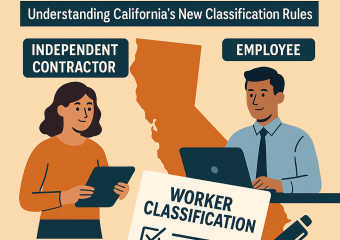AI Revolutionizes California’s Legal Services: Top Insights
How AI Is Transforming Legal Services in California
Artificial intelligence (AI) is rapidly reshaping various industries globally, and one of the sectors experiencing considerable transformation is legal services. In California, known for its tech savviness and innovative approach, AI is becoming a pivotal tool in law firms and legal departments. This integration of technology is not only streamlining workflows but also enhancing the accuracy and efficiency of legal processes.
The Role of AI in Legal Research and Data Analysis
One of the most significant impacts of AI in legal services is its ability to perform comprehensive and rapid legal research. Traditionally, legal research involved hours of sifting through case files, statutes, and legal precedents, which was not only time-consuming but also prone to human error. AI-powered tools now automate this process, analyzing vast amounts of legal documents in a fraction of the time it would take a human. This capability allows lawyers to focus more on analyzing the results and formulating legal strategies rather than on the preliminary data gathering.
Moreover, AI excels in identifying patterns and predicting outcomes based on historical data. For instance, in California, AI systems are used to predict the likelihood of success in various cases such as personal injury claims or intellectual property disputes. This predictive analysis helps lawyers and their clients make more informed decisions about whether to settle a case or proceed to trial.
Enhancing Accuracy and Efficiency
The incorporation of AI in legal services has marked a significant shift in how documents are handled and processed. AI tools are now used to draft and review legal documents, ensuring that they are not only accurate but also comply with the current laws and regulations. This task, when done manually, is prone to errors and can be exceedingly tedious. AI systems can also update documents automatically in response to new legal precedents or changes in legislation, thus maintaining their relevance and accuracy over time.
In addition, AI is instrumental in contract management, especially for commercial entities dealing with multiple contracts simultaneously. AI systems can track dates, deliverables, and compliance requirements, and even send alerts about upcoming deadlines or inconsistencies. This not only reduces the risk of breaches but also enhances operational efficiency, saving businesses time and money.
Streamlining Routine Tasks and Procedures
AI is also transforming mundane and repetitive tasks in the legal field, such as the scheduling of appointments, billing, and client communication. Chatbots, for instance, are being used to handle basic client inquiries without the need for human intervention. These AI-driven chatbots can provide quick answers to common questions, schedule meetings, and even direct clients to the appropriate resources or personnel.
Billing is another area where AI considerably reduces the workload of legal professionals. AI tools can track the time spent on clients automatically and prepare invoices based on this data, which helps in maintaining transparency and accuracy in billing practices.
Ethical and Privacy Considerations
While the benefits of AI in legal services are evident, it introduces certain ethical and privacy concerns that need to be rigorously addressed. The use of AI must comply with client confidentiality standards and the broader legal framework governing privacy. California, being a leader in data privacy laws with initiatives like the California Consumer Privacy Act (CCPA), is at the forefront in setting standards for ethical AI usage in legal practices.
Moreover, there is an ongoing debate about the extent to which AI should be involved in decision-making processes within the legal domain. While AI can assist, the final judgments and decisions should remain the prerogative of the trained legal professionals to prevent any overreliance on technology.
Conclusion
AI is undeniably revolutionizing the legal landscape in California by making legal services more accessible, efficient, and accurate. As these technologies continue to evolve, they promise to introduce even more capabilities. Consequently, law firms and legal departments need to stay updated with these technological advancements to harness their full potential while navigating ethical considerations efficiently. The future of legal services in California and beyond is poised on the edge of this modern technological revolution, setting a benchmark for others to follow.




